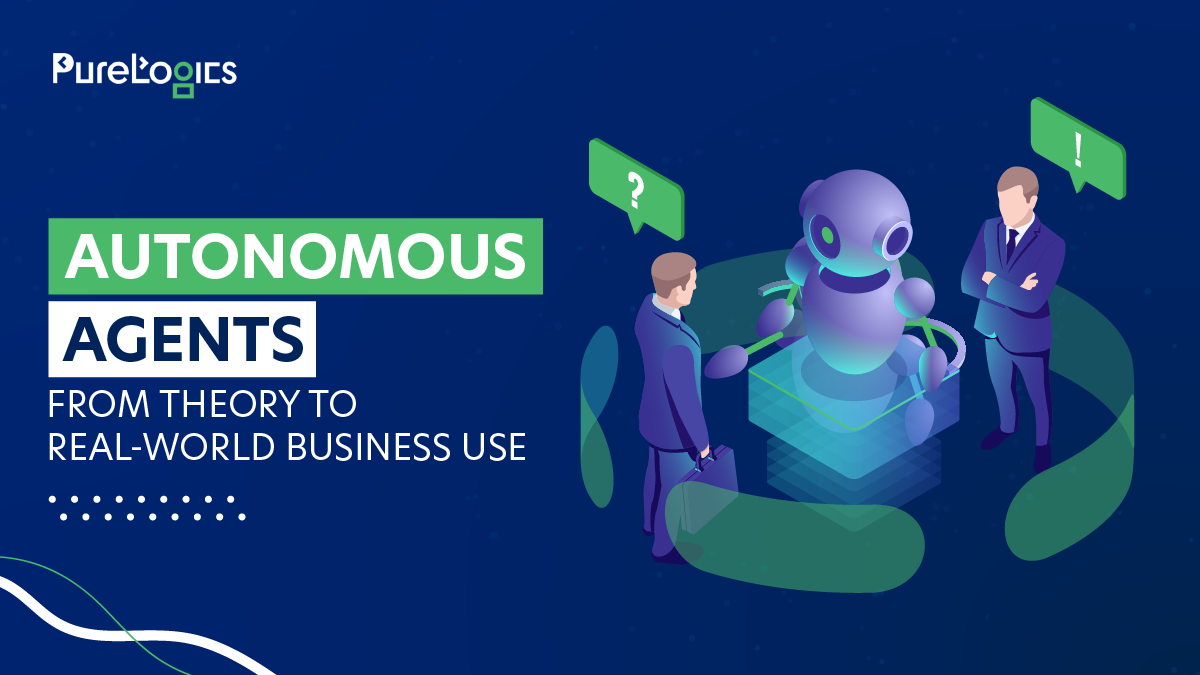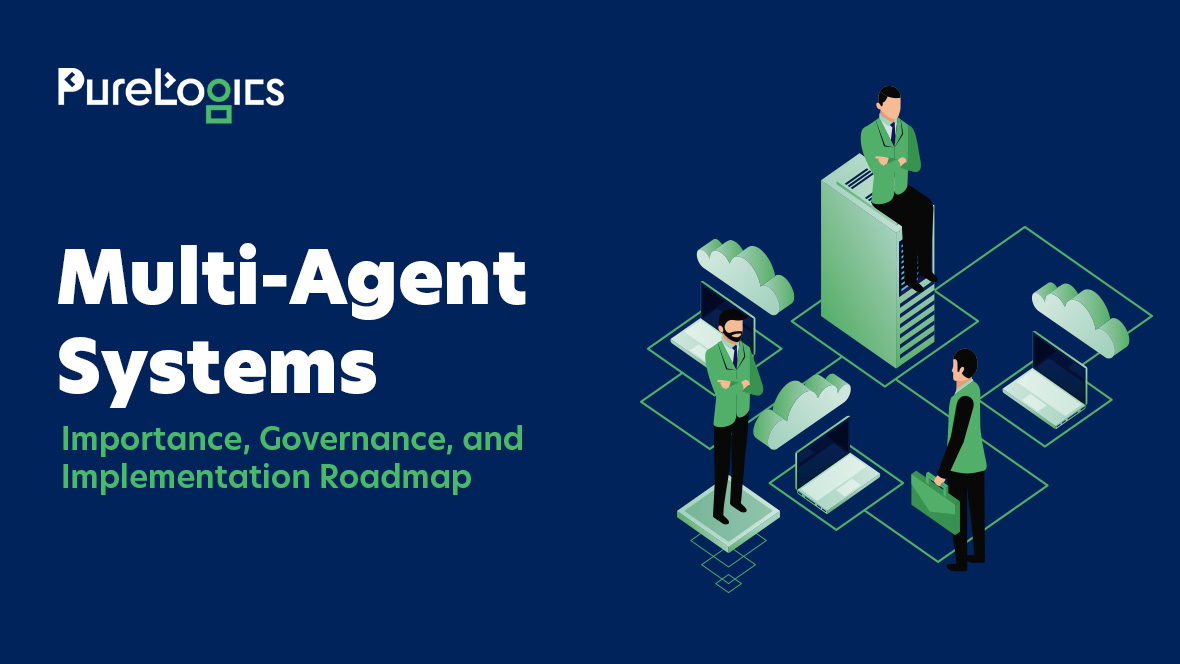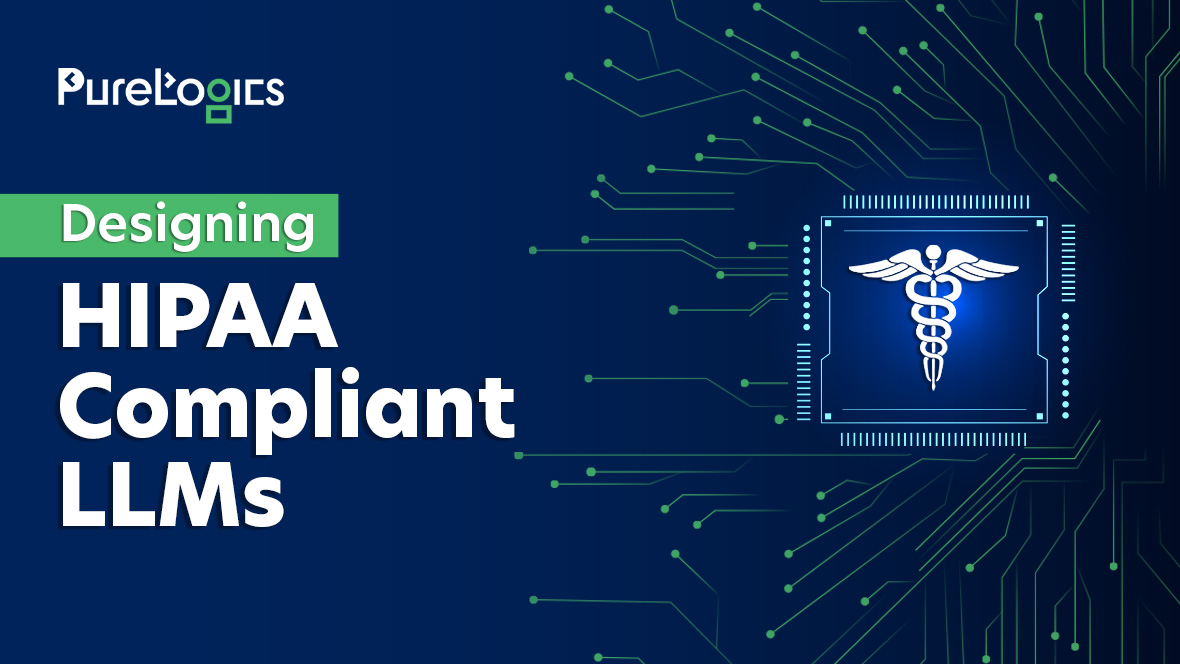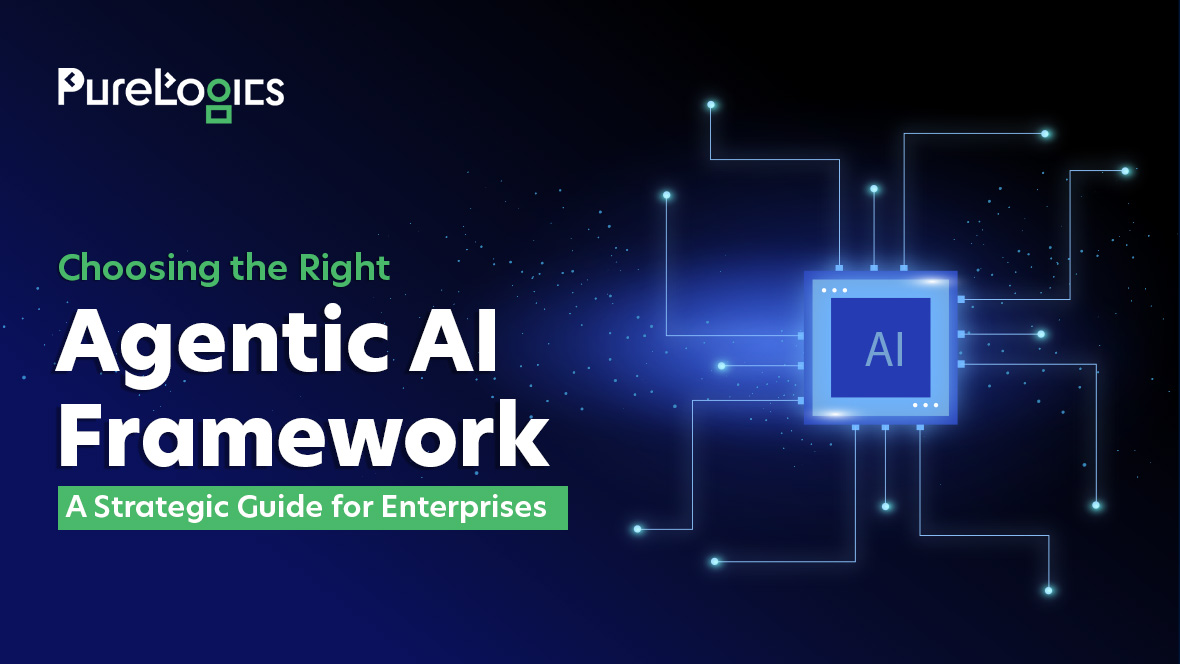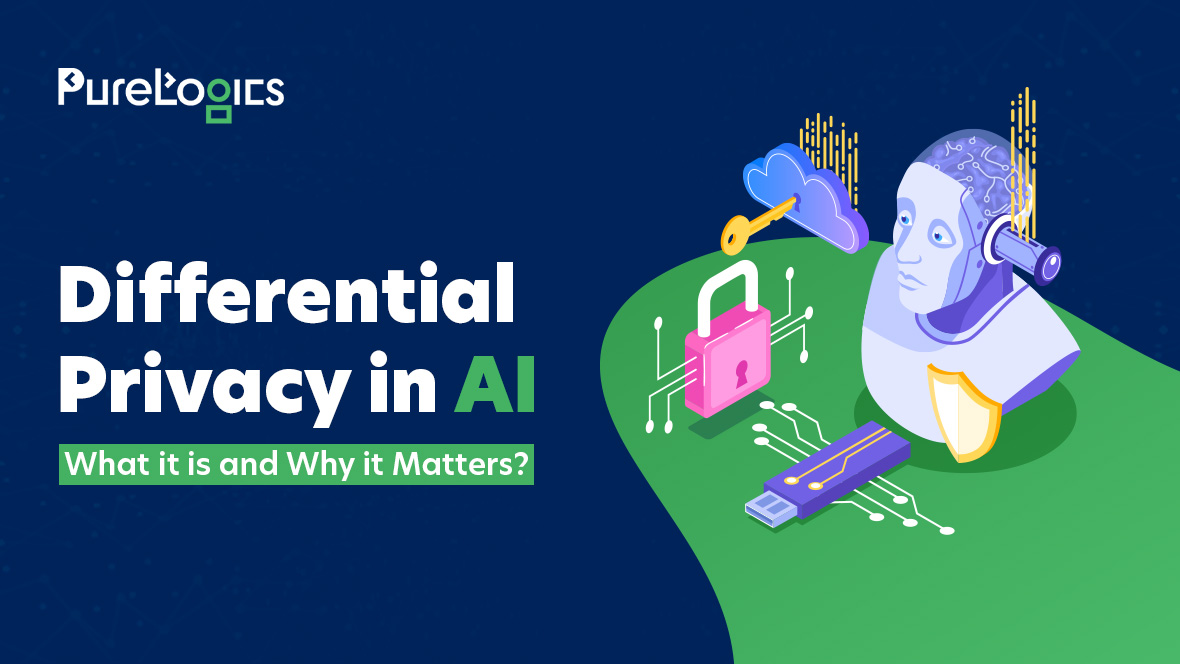The modern business glove is well-informed about the remarkable outcomes that surface when human ingenuity joins with autonomous agents who evolve and learn independently. The idea of autonomous agents in enterprises isn’t entirely new, as the updates in generative AI models such as ChatGPT have brought such digital entities to the limelight of technological innovation.
While ChatGPT has described the profound effect generative AI can have on our everyday lives, its powers are impeded by a few limitations, for example, maintaining context over handling complicated reasoning, long conversations, and retrieving real-time information.
Now, assume a scenario where AI agents produce high-quality content and autonomously ease complex tasks, apply logical reasoning, conduct transactions, learn from their actions, and more. Though it looks like the script of a science fiction movie, it’s the actuality that autonomous agents guarantee to deliver.
The Evolution of Business Operations with Autonomous Agents
Autonomous agents in organizations are the next big thing in the tech space, with unlimited potential to drive efficiency and innovation. These “autonomous” or “self-adaptive” systems function independently and make decisions without human intervention. They’re mainly automated AI programs drafted to perform unique tasks with minimal error rates.
With the ability to adapt and learn independently, autonomous agents support people and serve as transformative leaders to transform business operations. Their capability to continuously enhance and resolve emerging problems makes them game-changers for organizations worldwide.
Here’s an idea of autonomous agent architecture:
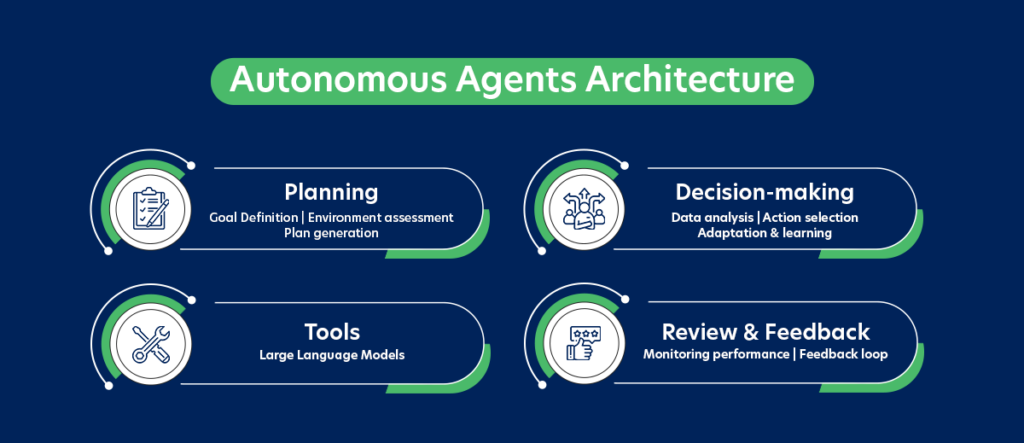
Practical Use Cases of Autonomous Agents
Autonomous agent implementation is beyond regular automation—it transforms entire organizational models with up-to-date capabilities. These agents can handle tasks like conducting research, coding, analyzing data, managing finances, booking travel, and serving as assistants. The possibilities are unlimited, and advancements within their skills are still being created at an accelerated rate.
Here are a few real-time use cases of autonomous agents that make a huge impact in multiple sectors:
Customer Service
With around 96% of customers willing to leave an organization because of bad customer service, companies must avoid unresponsive support. AI agents can improve customer interactions, making them more realistic and engaging.
Virtual assistants and chatbots like Amazon’s Alexa and Apple’s Siri use deep natural language processing to understand customers’ emotions and needs, tackle complicated queries, and offer personalized support. With this technology, businesses can enhance customer interactions and reduce operational costs and wait times, giving around-the-clock service that caters to customer requirements with increasing precision.
Marketing & Sales
Autonomous agents drive strategic optimization and targeted engagement in the marketing and sales departments. They analyze a huge amount of customer data to adjust campaigns and create customized marketing messages dynamically in real-time. This potential allows organizations to stay updated on market trends and enhance their advertising expenses through predictive analytics, guaranteeing that marketing strategies are highly adaptable and effective.
This use case is practical within the eCommerce and retail industry, where autonomous agents offer personalized shopping experiences to users, customizing services and recommendations to specific customer preferences.
Accounting & Finance
The future of accounting and finance resides in reducing human intervention to achieve higher accuracy, enhanced transparency, and reduced errors. This fuels a major demand for AI agents to lower administrative burdens and manual errors while ensuring robust compliance and security. Autonomous agents in finance generate real-time reposts, tackle financial reconciliation, and track transactions to prevent and detect fraud.
Real Estate
Autonomous AI agents in real estate help with property management by automating tenant communication, predicting property valuation, controlling rental payments, and scheduling maintenance. They also identify potential renters or buyers, analyze market trends, streamline transaction processes, and negotiate offers, freeing human agents for important, complex tasks.
Healthcare
AI agents in healthcare help both operational efficiency and patient care. Autonomous agents monitor patient health metrics to find and handle potential problems before they escalate, allowing personalized and proactive treatment. Furthermore, they refine administrative tasks like billing and appointment scheduling, letting healthcare experts focus mainly on the tasks they’re meant to tackle—patient Care.
Manufacturing
Autonomous AI agents in manufacturing help optimize production lines by reducing downtime, predicting equipment maintenance requirements, and more successfully maintaining robot fleets. Additionally, these agents analyze data from different sensors to optimize production, enhance efficiency, and ensure quality control, leading to increased productivity and cost savings.
Unlock the Full Potential of AI
Partner with us to develop AI agents that revolutionize your business operations and drive innovation.
How to Implement Autonomous Agents: A Step-by-Step Guide
Integrating autonomous AI agents in the enterprise demands a strategic methodology to ensure that the technology integrates smoothly with current systems and meets business goals. Here are some proven autonomous AI agent implementation steps and techniques to deploy this self-adaptive approach seamlessly in the business process.
Set Objectives
Initiate by finding requirements or setting the specific processes or tasks where autonomous agents can include the most value, like data analysis, process automation, or customer service.
Organize Technical Feasibility
Businesses should evaluate the technical aspect before jumping into AI development. Autonomous AI depends mainly on high-quality data to process effectively. Therefore, you must collect and organize data from diverse sources to refine and train AI agents.
Ensure the collected data is complete, accurate, and bias-free to enhance the AI models’ performance. Furthermore, you should assess integration potential with current systems to ensure smooth operations. This particular step is essential to determine if the project has the potential to meet objectives within the provided technical constraints.
Design the Agent Architecture
Create a robust and visually appealing architecture that is intuitive and simple to navigate, ensuring autonomous AI agents are high-performing, scalable, and accessible. Focus on developing a well-designed architecture that guarantees efficient interaction and data processing. By crafting the agent architecture, businesses can make the technology easier to integrate within everyday operations.
Select the Right Tech Stack
Assess and select the right AI technologies and tech stack that best suit your needs, whether NLP systems, machine learning models, robotic process automation tools, or computer vision techniques. Ensure the selected technology seamlessly integrates with your current software systems and IT infrastructure.
Develop & Tutor AI Agents
The next crucial stage is to create custom AI models personalized to your unique needs. This is one of the most vital steps of the autonomous agent’s implementation strategy, ensuring the effective execution of your product idea.
At this step, developers create AI models and validate that they comply with industry compliance and data protection regulations like GDPR. They integrate security measures to ensure the data and autonomous agents’ safety and protect against vulnerabilities. Additionally, they train these agents to update their knowledge and enhance performance based on feedback and new data over time.
Testing & Quality Assurance
Before deploying the final product to the chosen infrastructure, you should test them against different scenarios to manage issues and enhance their performance. This comprehensive testing phase guarantees that the autonomous AI agents work as expected under various conditions and meet the set reliability and quality standards regardless of any issue.
Deployment
Deploy the AI agents into your organizational processes, such as ERP, CRM, etc., ensuring they are configured properly, can access relevant data, and can offer impressive outcomes.
Tracking & Maintenance
Analyze and update the performance of autonomous AI agents regularly and integrate new features within the system to ensure it can effectively adapt to evolving business requirements. This ongoing maintenance will resolve bugs and glitches and align the system with changing consumer needs.
Assess & Iterate
Developing AI agents is a one-time procedure, but ensuring their uninterrupted performance is a long journey. Therefore, you should continuously collect insights from feedback, monitor the use of AI, and assess key performance indicators to enhance the AI model’s functionality and align it with changing user needs.
The Next Steps for Autonomous Agents in AI
From automating administrative workflows and generating high-quality data to handling user queries and scheduling predictive maintenance, autonomous agents in artificial intelligence are the next big thing in the modern enterprise world. However, with the evolving technology, it’ll be extremely hard to recognize the underlying technology of AI agent development and create these systems accurately.
At PureLogics, we have an in-depth knowledge of advanced AI technologies such as NLP, RAG, and ML, which results in the accelerated development of quality autonomous AI agents. Our expert team understands how to balance using AI technology’s maximum potential and adhering to top practices within digital platform development.
Are you still unsure about our potential to offer AI development services that can drive your organization to greater heights? It’s your time now. Don’t leave the digital revolution of autonomous AI agents. Call our experts today and learn how to automate your business workflows using AI.


 [tta_listen_btn]
[tta_listen_btn]
 October 21 2024
October 21 2024

